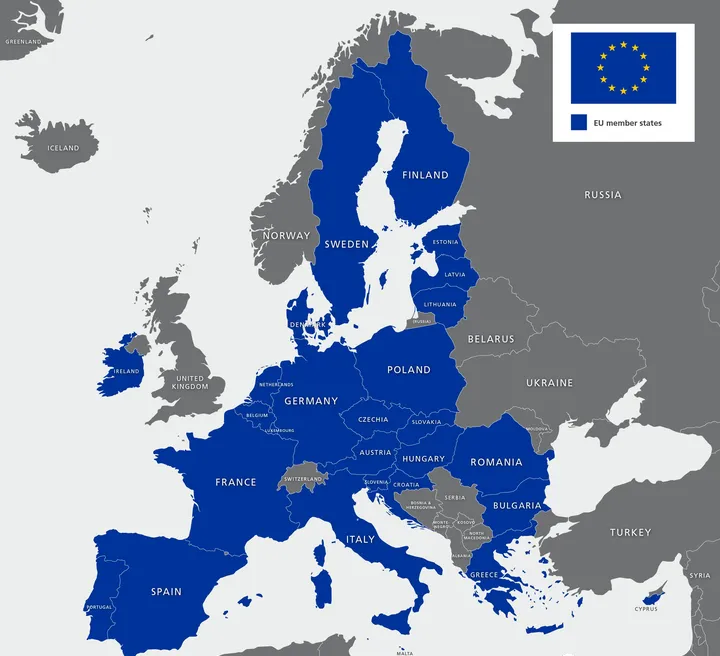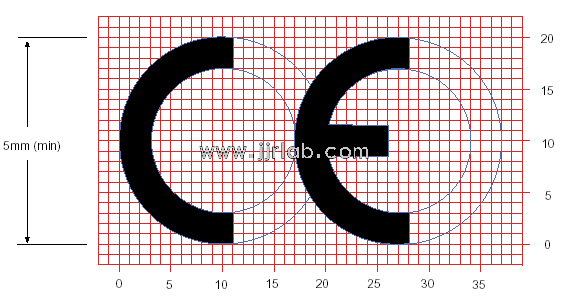
How Do You Get CE Certification?
ce mark: A Mandatory Compliance Mark in the EU
The CE mark is a mandatory compliance mark in the European Union, indicating that a product meets the relevant EU directives. To freely circULate products within EU member states, the CE mark must be affixed to the product.
However, some sellers are still unclear about "What is CE certification?" and "Which products require CE certification?" This guide will provide an overview of CE certification to help new sellers ensure product compliance.
What is CE Certification?
CE certification is a mandatory requirement under EU law for products sold within member states. It signifies that a product meets a series of safety, health, and environmental standards.
The CE mark serves as a safety symbol and acts as a passport for manufacturers to enter and operate in the European market. Products bearing the "CE" mark comply with the basic requirements of the EU's New Approach Directives on technical harmonization and standardization.
Products with the CE mark can be sold within EU member states without the need to meet each country's individual requirements, thus enabling the free movement of goods within the EU.

Scope of CE Certification
The CE certification is applicable in 33 econoMIC regions in Europe, including 27 EU member states, 4 countries in the European Free Trade Association (EFTA), as well as the UK and Turkey. Products with the CE mark can circulate freely within the European Economic Area (EEA).
The 27 EU Member States are:
Belgium, Bulgaria, Czech Republic, Denmark, Germany, Estonia, Ireland, Greece, Spain, France, Croatia, Italy, Cyprus, Latvia, Lithuania, Luxembourg, Hungary, Malta, Netherlands, Austria, Poland, Portugal, Romania, Slovenia, Slovakia, Finland, and Sweden.
Note:
- EFTA includes four countries (Iceland, Norway, Switzerland, and Liechtenstein), but the CE mark is not mandatory in Switzerland.
- CE certification is widely recognized globally and may be accepted in parts of Africa, Southeast Asia, and Central Asia.
- Although the UK left the EU in July 2020, it announced on August 1, 2023, that it would indefinitely retain the EU "CE" certification.
Which Products Require CE Certification?
The CE mark applies to 80% of industrial and consumer goods in the European market, covering 70% of EU imports. Exporting products to the EU without CE certification is illegal. Most products exported to the EU require CE certification, including:
- Power Products: Communication power supplies, chargers, display power supplies, LCD power supplies, UPS, etc.
- Lighting Products: Chandeliers, track lights, garden lights, portable lights, downlights, string lights, table lamps, grille lights, aquarium lights, street lights, energy-saving lamps, T8 tubes, etc.
- Household Appliances: Fans, electric kettles, speakers, TVs, mice, vacuum cleaners, etc.
- Electronic Products: Earbuds, routers, mobile phone batteries, laser pointers, vibrators, etc.
- Communication Products: Telephones, wiRED and wireless main and extension phones, fax machines, answering machines, modems, data interface cards, and other communication products.
- Wireless Products: Bluetooth products, wireless keyboards, wireless mice, wireless readers, wireless transmitters, wireless microphones, remote controls, wireless network devices, wireless video transmission systems, and other low-power wireless products.
- Wireless Communication Products: 2G phones, 3G phones, 3.5G phones, DECT phones (1.8G, 1.9G frequency bands), etc.
- Machinery: Gasoline engines, welding machines, CNC drilling machines, tool grinders, lawnmowers, washing equipment, bulldozers, lifts, punchers, dishwashers, water treatment equipment, gasoline welders, printing machinery, woodworking machinery, rotary drilling rigs, grass cutters, snow blowers, excavators, printers, cutting machines, rollers, trowels, brush cutters, straighteners, food machinery, lawn mowers, etc.
- Medical Devices and Toys
ce certification process
The CE certification process includes application, evaluation, certification, and supervision. The evaluation process, which involves assessing the product's design, production, and testing, is the most crucial step.
When applying for CE certification, sellers need to provide relevant documents and proof, such as technical documents, test reports, and production records. The general steps are:
1. Fill out the application form.
2. Assessment and proposal.
3. Prepare documents and samples.
4. Product testing.
5. Review reports and certification.
6. Declaration and product labeling with the CE mark.
How to Use CE Certification?
Products undergoing CE certification must bear the CE mark before being marketed in the EU, indicating that the product meets all the necessary requirements stipulated by EU ce marking regulations and can circulate freely within the EU market.
The CE mark is not issued by any official authority, certification body, or laboratory but is created and affixed by the manufacturer or their sales agent. The CE mark can only be applied once the product meets all directive requirements.

CE Marking Requirements:
- The CE mark must be affixed to the data plate. If not possible due to the product's nature, it must be affixed to the packaging. If the directive specifies other requirements for the CE mark, those requirements must be followed.
- When reducing or enlarging the CE mark, the proportions indicated in the illustration must be maintained.
- The vertical dimensions of the CE mark must be the same and must not be smaller than 5mm.
- The CE mark must be clearly visible and indelible.
- The CE mark must be affixed in a conspicuous position on the nameplate and packaging, with a height not less than 5mm, and proportionally scaled.
Moreover, products requiring CE certification must have a responsible person or company based within the EU to ensure product compliance. Without an EU-based responsible person, the sale is considered illegal. Therefore, products with the CE mark must have an EU responsible person to be sold legally.
Email:hello@jjrlab.com
Write your message here and send it to us
 European Toy Safety Standard EN 71-20:2025
European Toy Safety Standard EN 71-20:2025
 EN 18031 Certification for Connected Devices on Am
EN 18031 Certification for Connected Devices on Am
 Compliance Guide for Portable Batteries on Amazon
Compliance Guide for Portable Batteries on Amazon
 2026 EU SVHC Candidate List (253 Substances)
2026 EU SVHC Candidate List (253 Substances)
 LFGB Certification Cost and Timeline Guide
LFGB Certification Cost and Timeline Guide
 Bluetooth FCC Test Report
Bluetooth FCC Test Report
 Is FCC Testing Required?
Is FCC Testing Required?
 Where to Find FCC Test Reports
Where to Find FCC Test Reports
Leave us a message
24-hour online customer service at any time to respond, so that you worry!




